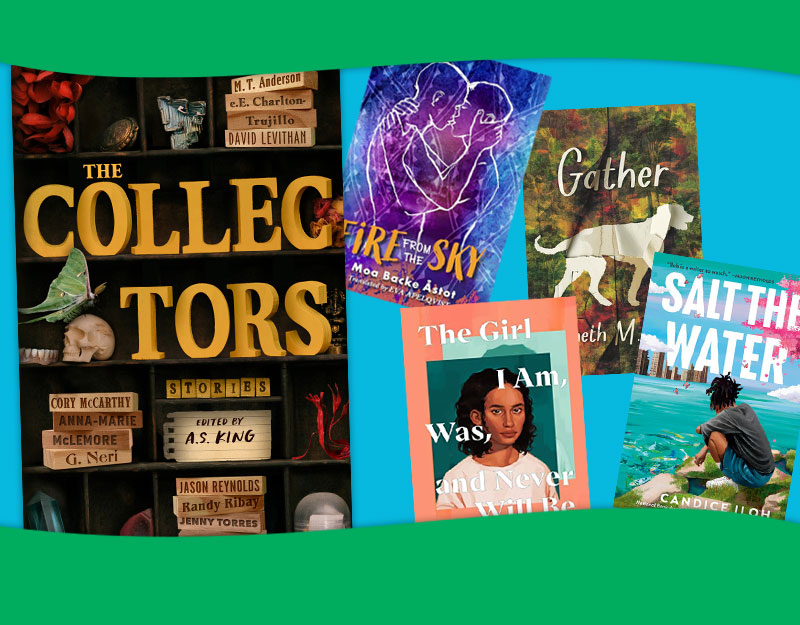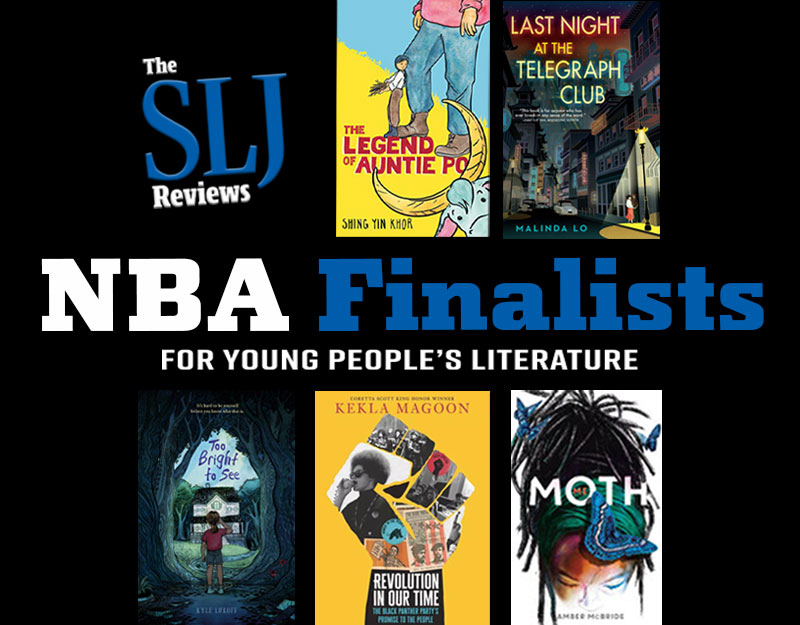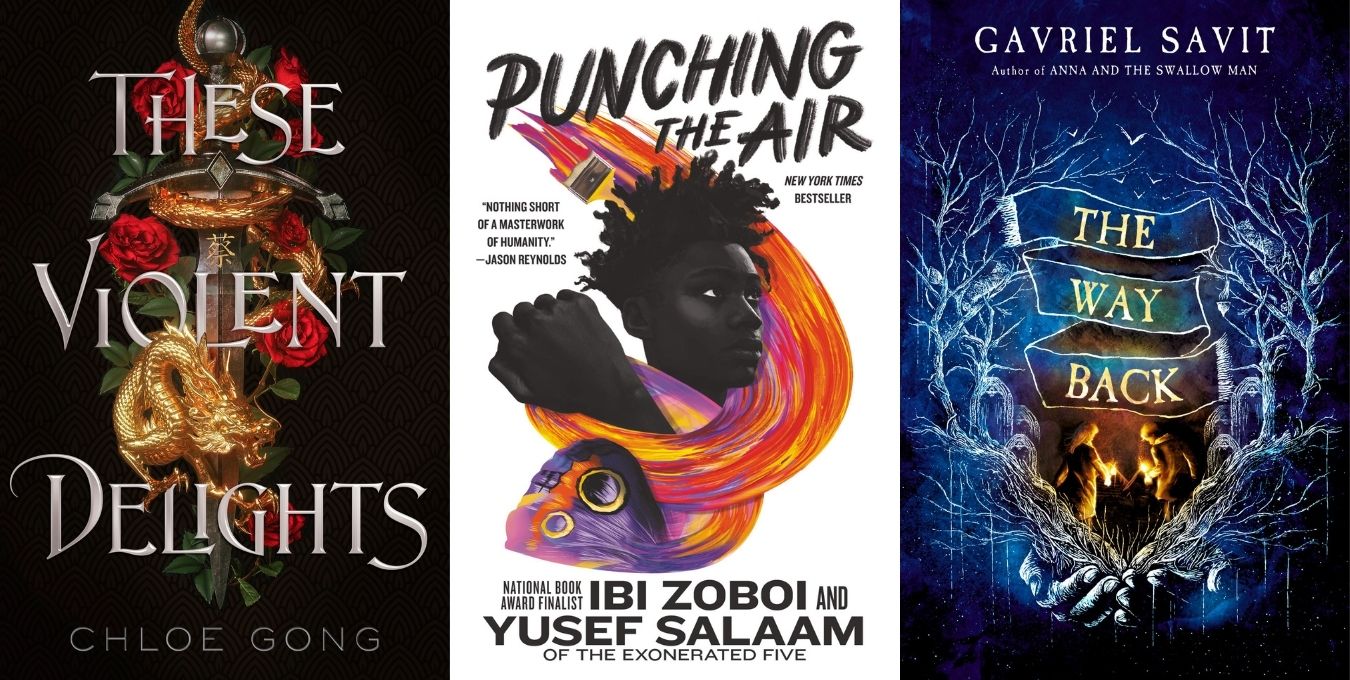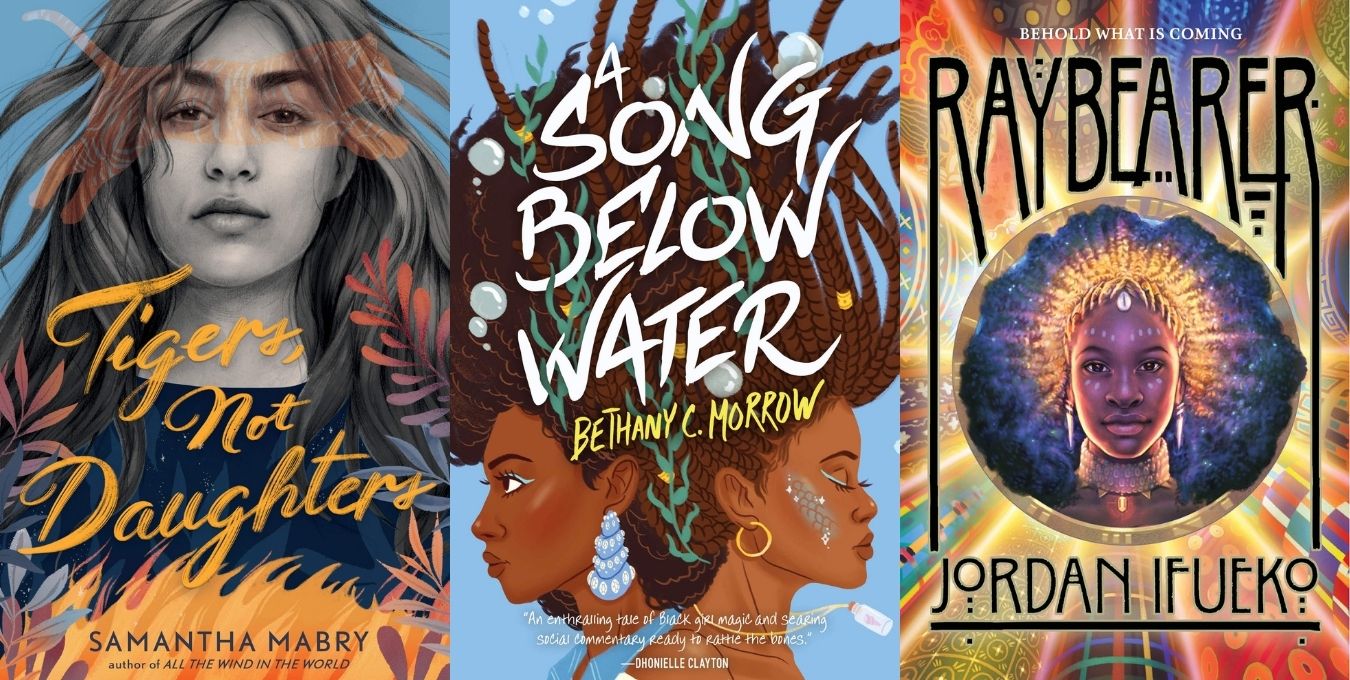Voting on Apples, Oranges and Lychees
Here’s a little more description of the content of our deliberations…at least my table’s half of the discussion.
Jonathan notes that while THE DUNDERHEADS was well praised at his table, only he cast a vote for it in the first ballot, and that the group then pulled it out of discussion in order to focus more on the titles that had more support.
DUNDERHEADS was also well praised at my table, so much so that we had a hard time finding fault with it. We liked the use of language, the structure, the tone, the presentation. There were concerns about having too much left out of the text in parts, and what reliance on the illustrations that forces the reader to. (This would be, I think, the "fault" that some would find in it.) I myself found the ellisions in the narrative to heighten the effectiveness and appeal. (To me it doesn’t matter how Wheels transports everyone, for instance).
ADVERTISEMENT
ADVERTISEMENT
Some asked how to compare it to, say a novel like WYRM or CALPURNIA or an "important" work of nonfiction like CLAUDETTE or MARCHING…all of which may give more to readers, simply because there’s more to them. I asked members to consider DUNERHEADS for how well it achieves what it sets out to do.
In the first ballot, DUNDERHEADS got 2 first place votes, 2 second place votes, and 3 third place votes, putting it in "second place," where it stayed strongly throughout the voting process.
While we found DUNDERHEADS "nearly flawless"…we discussed a lot of the weaker or confusing points in WYRM, and acknowledged that while it’s a broadly appealing book to sell to an audience, it may actually work best for a very particular type of reader, who appreciates the complex and speculative leap of faith. In comments on the Race Card post in particular, it’s clear that this is a text where the reader must make a lot of inferences. Some people seem uncomfortable with the possibility that some readers might not make a certain inference….but I think that it makes the book richer. It’s a book that’s respectful of its audience, and challenges them to understand the story at more than surface level. I pointed out that no book is flawless…that even if we weren’t seeing the flaws in DUNDERHEADS, it just meant that we hadn’t found them yet, and that no Newbery winner is without it’s flaws or weak points. I personally (who voted for WRYM 1st place, and DUNDERHEADS 2nd), felt that WYRM is slightly more remarkable, more evident of excellence in the variety of criteria applicable to it, more distinguished than DUNDERHEADS, qualitatively (not in quantity of distinguished elements, but in how distinguished they are). But: slightly.
Interestingly, when we got to WHERE THE MOUNTAIN MEETS THE MOON, our comments seemed to fall on the "flaws outweigh strengths" scale, but I feel like we were just lacking the right champion for this book at our table. It fell out of contention as early and easily as THE DUNDERHEADS did for Jonathan’s group.
Something else about our particular voting process that bears discussion here. We had 10-11 voters ranking 1st, 2nd, and 3rd place choices for 8 titles. 8 titles is kind of a limited field to be doing that kind of voting (but 8 titles is what I can get everyone to read)…and ends up often encouraging the kind of split fields that Jonathan and I saw in both our groups. If you have a list of 20 or 30 or 40….then a lot of single votes spread out, and let the titles around which there IS a little more consensus rise to the top. Generally the committee wants to be careful about knocking too many titles out of contention for voting, because you want to retain a wide field for subsequent ballots. That is…you might have several titles with very few votes on the first ballot, but keep them in the running, not remove them prematurely, so that the votes continue to gel towards a consensus. If you get too slim a field, then you could end up with the awkward situation where a member doesn’t HAVE three titles they want to vote on, yet they must. That happened in our final Mock ballot for the Honor books. It ended up, I believe, muddling support for some of the books in the middle.
I also think our split fields were due partly to the variety of books on the table…that when faced with such difference types of titles, many of us voted with our gut. Though the gut does guide the Newbery committee at times…recall that they have a year–with several days of discussion at the end–to chew before they swallow.
Filed under: Uncategorized
About Nina Lindsay
Nina Lindsay is the Children's Services Coordinator at the Oakland Public Library, CA. She chaired the 2008 Newbery Committee, and served on the 2004 and 1998 committees. You can reach her at ninalindsay@gmail.com
ADVERTISEMENT
ADVERTISEMENT
SLJ Blog Network
2024 Books from Pura Belpré Winners
In Memorium: The Great Étienne Delessert Passes Away
Winnie-The-Pooh | Review
Parsing Religion in Public Schools
Finding My Own Team Canteen, a cover reveal and guest post by Amalie Jahn
ADVERTISEMENT








Our group had very positive things to say about THE DUNDERHEADS, too. We had no flaws for it either. We did have apples vs. oranges problems, however. I actually think we found it harder to compare the picture books with the novels than the nonfiction with the novels. One of the things we referenced in our discussion was the opening line of the CCBC-NET rules of discussion. I’m paraphrasing here, but I think it says, Value each book for what it is, not for what it is not. We were able to do that–almost too well, at times. When you get a handful of books that seem like they accomplish what they set out to do, how do you decide between them, then? Do you default to your favorite?
I feel that this has been discussed before, but I can’t find the post about it, so I’ll ask again. For the mock Newbery discussions, I know that you go in with a predetermined discussion list of 8 books. The Notables committee goes in with a list of 200. Do the other committees also go in with a predetermined discussion list? Are publishers notified if they have a book that is being considered?
The committee goes in with a list of suggestions and nominations. Could be a hundred books. Could be more. Could be less. Every book on that list is packed into trunks and brought into the room. ALSC gets these books from the publisher, but I’m not sure if they know which committee is considering the book (especially with so many ALSC committees), but Nina can address this point better than I can. You also have an opportunity to add titles to consideration that may have come to your attention during the past couple weeks. Then the first order of business is to agree if there are books you can take off the list with a straw poll. I think we were able to cut our list in half before we actually started discussing the books.
Jonathan said, “ALSC gets these books from the publisher, but I’m not sure if they know which committee is considering the book (especially with so many ALSC committees)”
We send copies of the book to every committee member for every book we, the publishers, think the book is eligible for. I’m under the impression that this is standard operating procedure at most houses, not just the one where I work. With the exception of Notables, whose discussion list is published before the conference, we do not know if the committees are actually considering the books we send them. We hope they are, and very, very quietly discuss the competition and our books’ prospects, with lots of knocking on wood.
I think publishers also send copies to the ALSC office and these must be the ones loaded into the trunk, then. I do think that sometimes the ALSC office has to call publishers for copies if a book is being considered that was not submitted. You’d be surprised by what is submitted to the committee–and what is not.
Actually, we’ve been notified of shortlisted books in the past for the Schneider award, the Odyssey award, and the Belpre award. These are newer awards, though, so maybe it’s not as secretive. For awards like the Belpre, the committee has to confirm the eligibility of the author or illustrator, so it may be necessary to contact the publisher beforehand.